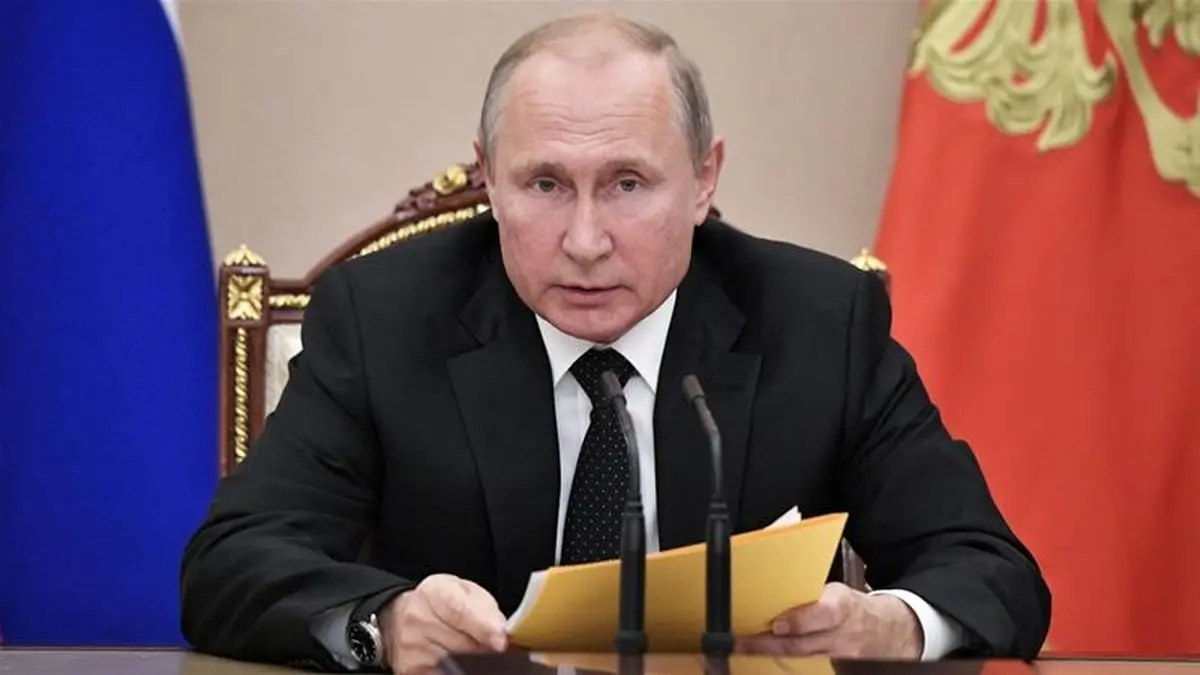Putin calls for Russia's 'symmetric response' to US missile test

President Vladimir Putin has ordered the Russian military to find a "symmetric response" after the United States tested a missile banned under a now-defunct arms treaty.
Putin ordered an analysis of "the level of threat for our country created by the actions of the US and to take comprehensive measures to prepare a symmetric response", he said at a Russian Security Council meeting in the capital Moscow on Friday.
On Monday, the Pentagon said it tested a conventionally configured cruise missile that hit its target after more than 500km of flight, its first such test since the demise of a landmark nuclear pact this month.
Putin said that the test confirmed prior suspicions that the US had planned to place banned weapons in Europe.
He said Moscow was against placement of the launchers in Poland and Romania as part of a missile defence system, but the US denied they could be used offensively to launch Tomahawks.
Washington's "true intentions", he said, are to "deploy formerly banned weapons in various regions of the world".
But placing them in Europe as well as in Asia "touches upon our basic interests, since it is close to Russian borders", Putin added.
Russia and China have warned that Sunday's launch of the nuclear-capable Tomahawk cruise missile with a MK-41 launcher had heightened military tensions and risked sparking a new arms race.
Chinese Foreign Ministry spokesman Geng Shuang said on Tuesday that the US test showed that Washington was stoking a new arms race and confrontation, which would have a serious negative effect on regional and global security.
Washington has insisted the test does not signal the start of an arms race as it denied having plans to develop nuclear-tipped weapons.
Defunct treaty
Washington formally withdrew from the landmark 1987 pact with Russia on August 2, after determining that Moscow was violating the treaty, an accusation the Kremlin has denied.
The INF agreement, signed by Ronald Reagan and the last Soviet Union leader Mikhail Gorbachev, limited the use of conventional and nuclear missiles with ranges of 500 to 5,500km.
US officials repeatedly accused Moscow of developing and deploying a ground-launched system in breach of the treaty that could allow it to launch a nuclear attack on Europe at short notice.
Moscow rebutted those allegations, instead claiming that elements of the US' missile defence shield hosted by its NATO allies in Europe contravened the agreement.
On Friday, Putin accused Washington of "directing a propaganda campaign about Russia's alleged non-compliance with the treaty," saying it was just a front for developing a new weapon.
Putin said Moscow "is still open to equal and constructive dialogue" with the US to discuss global security. He earlier promised not to deploy new missiles in world regions until the US does the same.
Russia "will not be pulled into an expensive arms race destructive for our economy" but will need to "ensure the safety of our people and our country", he said.
END
